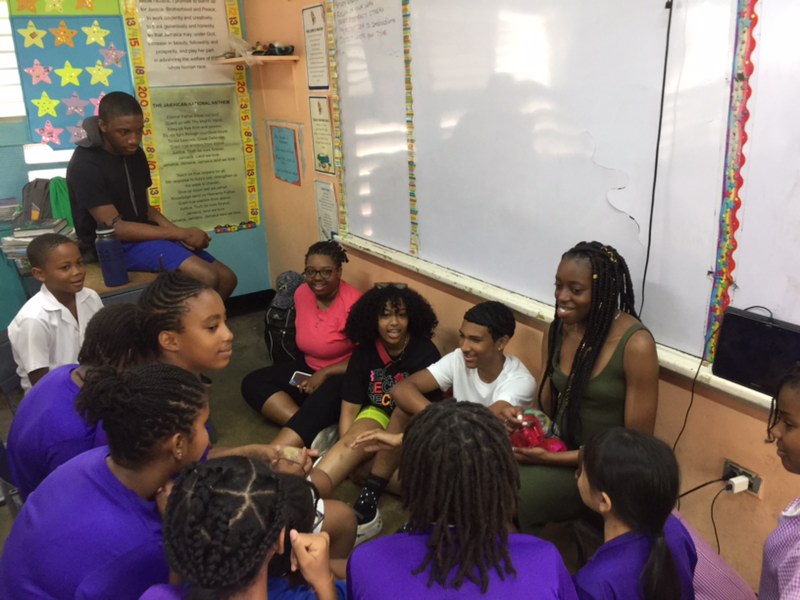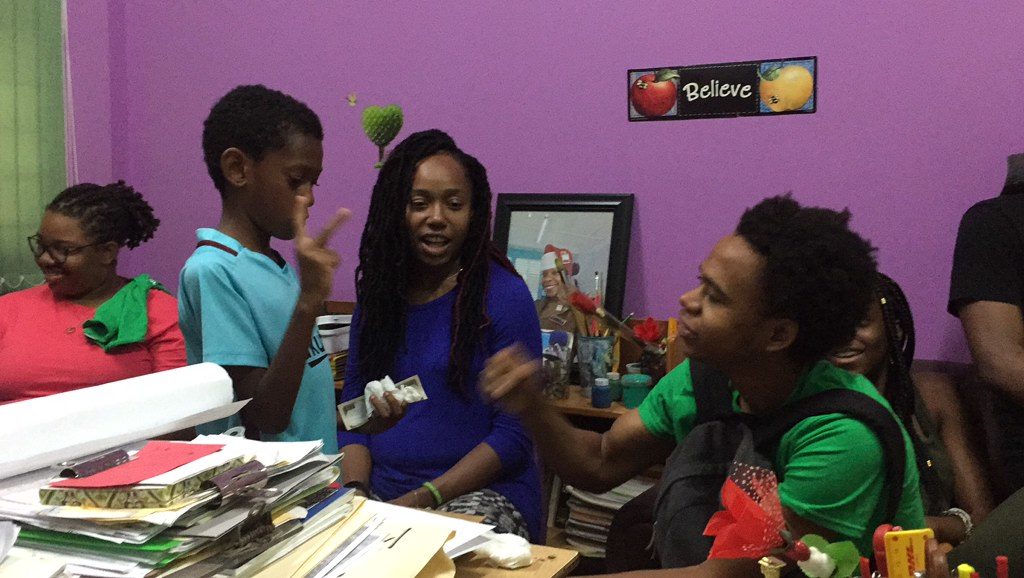
It was our second day in Jamaica. We woke up and got ready to go to the Saints Peter and Paul Preparatory School, a Catholic private school in Jamaica. Our goal for the day was to meet students and ask them questions to compare their education system to ours. The school was amazing. It was perfectly clean and the children were so respectful.
Walking into the classrooms in the hot Jamaican air, the children did not even break a sweat. We certainly were, but seeing those children’s excited and curious faces was worth the sweat. We visited the 4th grade classroom with children aged from 9 to 10. We sat down with them as they asked questions like “Have you ever met Donald Trump” or “Do cheerleaders always date football players.” I laughed at the stereotypes that Jamaican children had about us Americans or even how TV, social media, and magazines portray the “American lifestyle.” I tried to explain to them that America is not like how it is shown on TV. We are not all rich, and we do not meet celebrities on a daily basis. I told them, “we are just as normal as you guys.” Even with these curious questions being thrown at us I still had questions about their school system.

We also played at lunch with the kids as they showed us their amazing tricks like cartwheels and handstands and asked me could I do the same. Later in the day, we sat down with Dr. Corretta Johnson, the school psychologist, and learned about how their education was different from ours. She told us about how the kids have tests in each grade to see if they were prepared to move on, 6th graders take a huge test that determines what high school they go to, and 7th grade to 11th grade is high school and there are two grades after high school for high performing students. Personally, I did not like the fact that this test determines the kid’s future school, and I assume that not every person is a big tester.

Before Dr. Johnson had explained their education system, I assumed — just as the children did by looking at TV and social media — that I knew what their lives were like. In the media, I saw that their technology was behind and children were not attending school, but I was absolutely wrong. The children were so advanced, and so was their technology. They played with their tablets in class and showed me new games on their tablets. It was very eye-opening to see the similarities and differences between the American education and Jamaican education systems . Similarities could be found in the classrooms such as labeling different objects in different languages, classwork, and also various standardized testing. But, a big difference I noticed was that many Jamaican kids are way more active than American kids. They have longer recesses and more time to be outside.
I am proud to know more about Jamaican culture as it brings me closer to my Jamaican heritage. I am proud to say I am half Jamaican. This is my first time traveling to Jamaica and I could not be more excited to be here and embrace every second.
Yazmine A., SEED Public Charter School

One thought on “LearnServe Jamaica 2019, Day 2: Moving Past School Stereotypes”
I am so proud of my Granddaughter, Yasmine-Gizelle!
She was quick to point out her misconceptions of what she had read and heard and how she expected to find the educational system in Jamaica. Quite frankly, Yazzi was happy that she was incorrect!! Experiences such as this will only continue fuel her curiosity, enable her be open to new situations, and, ensure that moving forward that she will “cast a wider net” when seeking information.
Moreover, this trip and the new friends she met and made will stay with her as she moves through her journey to embrace all she is and will become! Go Yazzi!
Posted for Gaby Fraser